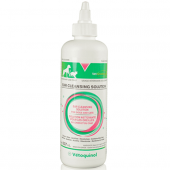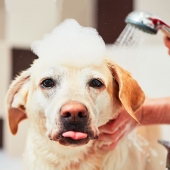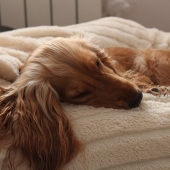Your pet has bad breath, what can you do?
Who hasn’t given their pet a hug or received a big sloppy kiss on the cheek and noticed an unpleasant odour from their pet’s mouth? It’s important to know that your pet’s mouth is full of bacteria, so if there is a bad odour, this could be due, among other reasons, to the growth of these bacteria. Bad breath (medically known as “halitosis”) can be a problem and shouldn’t be taken lightly. The first thing to do is determine the cause.
First, it is important to have your pet examined by your veterinarian, just as a person with bad breath would consult the dentist.
What are the different causes of bad breath?
While checking your pet’s mouth, the veterinarian will be looking for the following signs:
- Tartar
- Abnormal colour or redness of the gums, tongue, palate or throat (sign of inflammation)
- Dental plaque, which could cause a periodontal disease such as gingivitis
- Condition of the teeth (cavity, broken tooth, loose tooth) or an abscess
- Lesions or injuries
- Lumps
Sometimes, bad breath may also have more serious causes such as the following general diseases:
- Diabetes
- Kidney failure
- Respiratory system diseases
- Digestive system diseases
What treatments are available?
Your veterinarian is your best ally for finding solutions for your pet.
- If the examination reveals gingivitis, tartar or dental plaque, your veterinarian may then recommend scaling done under anesthesia. This will often resolve the inflammation and bad breath.
- If it involves a more serious disease, then your veterinarian will recommend other treatment plans adapted to your pet’s condition.
What can be done as prevention?
The first step in resolving bad breath is to take care of your pet’s teeth. Here are some tips:
- Brush your pet’s teeth 2 to 3 times a week (Read our articles "How do I brush my dog’s teeth and how often?" and "How to brush my cat’s teeth?")
- Use a toothpaste for veterinary use. Your own toothpaste is not meant to be swallowed.
- Use a complete kit specifically designed for brushing. Discover our Enzadent Starter Fingerbrush Kit and Enzadent Complete Toothbrush Kit.
- Choose bigger “dental” kibble that forces your pet to chew.
By taking care of your pet’s teeth, you are making your whole family’s






